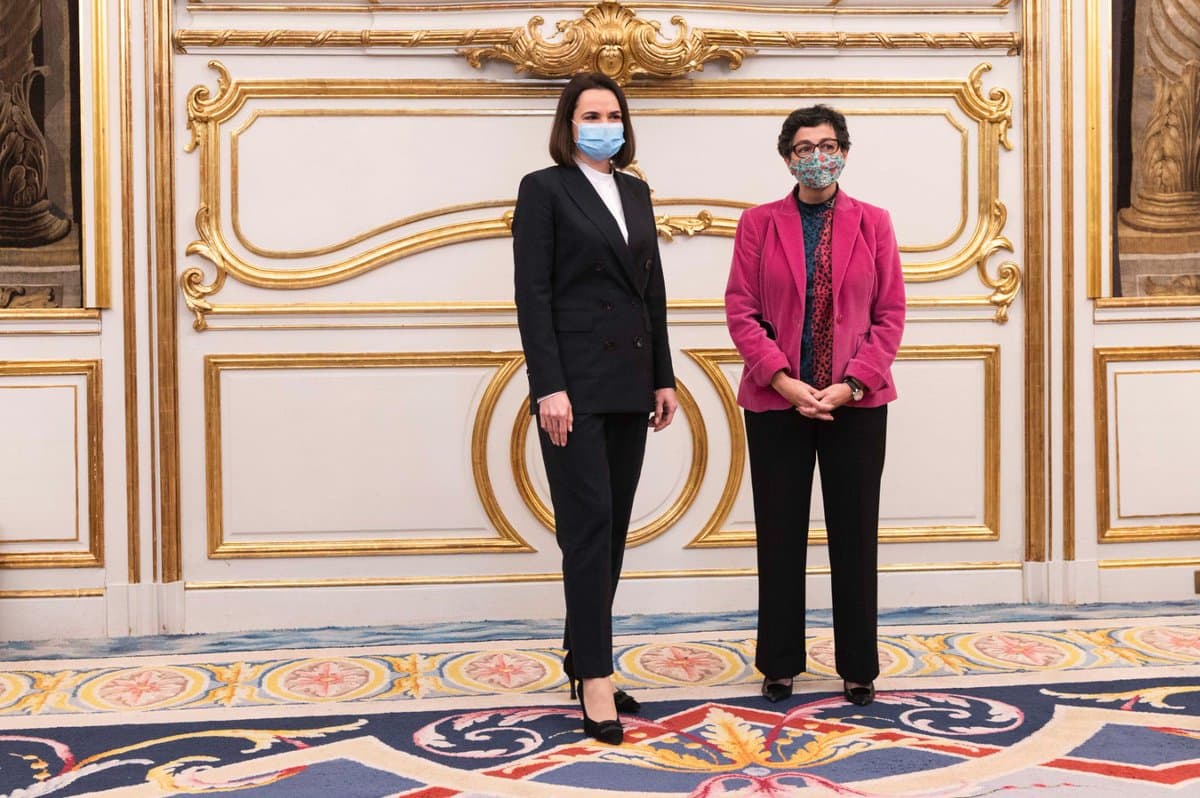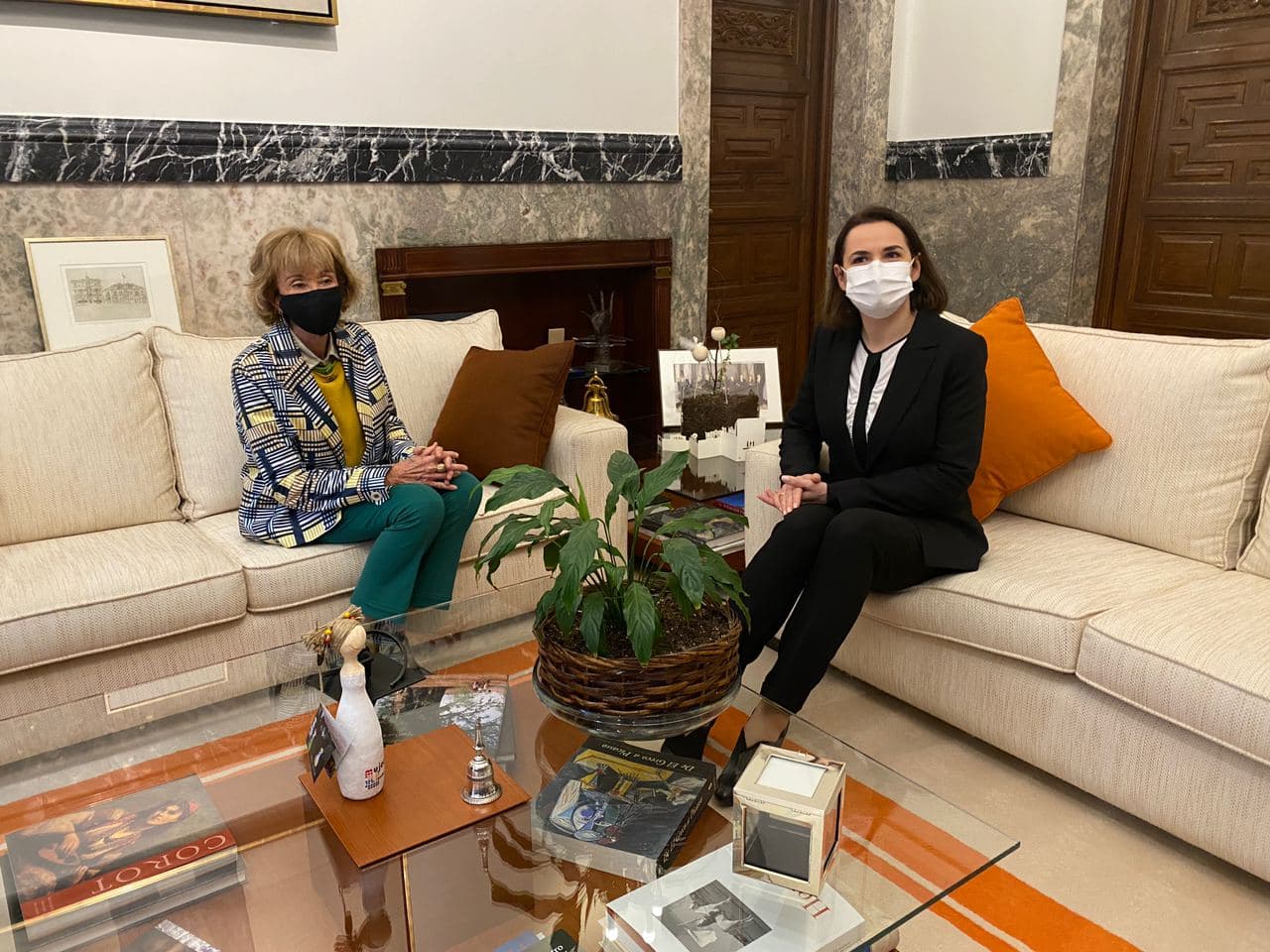Sviatlana Tsikhanouskaya had a working visit to Madrid. She met with the Foreign Minister Arancha González Laya and had a call with the Prime Minister Pedro Sánchez, who is now in self-isolation.
In Madrid, Sviatlana met with the opposition leader Pablo Casado, former NATO Secretary General Javier Solana and the President of the Spanish State Council María Teresa Fernández de la Vega. Sviatlana also talked with the Belarusian diaspora, representatives of civil society and expert centers, deputies of the Spanish parliament.
Many Spaniards compare the Lukashenka regime to the era of Francisco Franco. Sviatlana spoke more than once about Spain's example in building a democratic society after Franco's dictatorship. The country held new elections, followed by political, economic and constitutional reforms. During the discussions, the elected leader of Belarus raised the topic of reforms and assistance to Belarusians in preparing these reforms during the transition period.
At the meeting with the Minister of Foreign Affairs, Tsikhanouskaya spoke about the support for the women's movement, the imposition of sanctions against security officials, officials and election falsifiers in the form of a ban on entry into Spain, including the Canary Islands. They also discussed the expansion of the sanctions list against Lukashenka and close companies and the support of the Belarusian people in international organizations – OSCE, UN, Council of Europe.

Photo: @SpainMFA
Tsikhanouskaya and Arancha González Laya agreed to strengthen the role and status of the Belarusian diaspora and support the activities of the Belarusian People's Embassy and People's Consulate, which have recently opened in Madrid and Barcelona.
Spain plans to assist the repressed athletes and students, for example, with scholarships that will allow them to continue their studies remotely. Spain will consider the possibility of accepting for treatment of wounded peaceful protesters.
The Prime Minister and the Foreign Minister stated that Spain expresses full solidarity with the Belarusian people, with those who take to the streets and fight for free elections. “Spain shares the decision of the European Union to support the democratic aspirations of the Belarusian people and calls for a comprehensive national dialogue,” said the head of the Spanish Foreign Ministry.
Sviatlana Tsikhanouskaya and Javier Solana discussed the organization of negotiations to resolve the political crisis in Belarus and the parties to these negotiations. Solana has been to Belarus many times and took part in solving similar crises.
Sviatlana suggested that the Spanish government organize a joint conference with the participation of the Spanish private sector to prepare an investment proposal: in which sectors and companies in Belarus Spanish private business could invest. This could become a part of the European Comprehensive Plan for Belarus.
Tsikhanouskaya thanked Spain and the government for refusing to recognize Lukashenka and the officially announced election results, solidarity with the Belarusian people. Spanish media have been actively covering the Belarusian protests since August. “Spaniards understand very well what we are going through and what we are fighting for now, because not so long ago they fought against Franco's dictatorship”, said Sviatlana Tsikhanouskaya.

She also appealed to the Spanish society and MPs to write letters to Belarusian political prisoners and fight for their release.
More photos of the visit can be found on Sviatlana Tsikhanouskaya's Telegram channel.







